185-year-old Huliheʻe Palace in Kona housed kings and queens; now it needs help

Along touristy Aliʻi Drive in downtown Kailua-Kona, next to an ABC Store, there is a wrought-iron gate with the Hawaiian State seal engraved on it. Walk through the gate and a stony path takes you back in time, to the nearly 200-year-old Hulihe‘e Palace, once the Big Island summer home to the kings and queens of Hawaiʻi.
The palace — one of only three that still exist in the United States — is magnificent. In one of the six rooms is a collection of ancient Hawaiian artifacts, including spears, jewelry, hula implements and King Kamehameha I’s exercise ball, a spherical 180-pound stone which he reportedly used for strength training by pushing it with his feet or anchoring him to the ocean floor.
The property also features beautiful koa wood furniture, ornaments, portraits, tapa, feather work, Hawaiian quilts and other artifacts from Hawaiʻi’s regal past.
But the future of Hulihe‘e Palace — which also is the oldest existing palace in the country — is one natural disaster away from being lost forever.
For several years, Hulihe‘e Palace has suffered severe “physical trauma” — caused by tsunamis, earthquakes and high surf — that can be seen throughout the grounds. From the crumbling foundation and eroding sea wall to the lopsided and lumpy grounds, the palace is in a constant state of disrepair.
“We are literally fighting the rising tide, the elements all day, every day,” said Manu Powers, regent and president of Daughters of Hawaiʻi, an organization that takes care of the palace. “You can feel it right now: salt, sea, wind, sun. It’s every day, chipping away.”
An opportunity is coming up to support the palace. On Feb. 25, the Daughters of Hawaiʻi host the annual Day of Hulihe‘e, which returns after a three-year hiatus due to the COVID-19 pandemic.
Day of Hulihe‘e is a celebration to honor Princess Ruth Keʻelikōlani’s 197th birthday. Local vendors, artists and resident Kumu Hula Etua Lopes will be present with his palace dancers to perform hula.
“For us to return is huge,” Powers said. “It’s an opportunity to remind people that the palace is there for everybody. It should be the piko (center) of the community. It’s so refreshing to have a full scale event. To have to cancel it all those years was really painful.”
The return of Day of Hulihe‘e also is a culmination of the Daughters’ continued work to build back their lost network of docents and volunteers who helped at the palace. They are currently actively hiring a programs education director.
The palace could use some aloha.
Sitting on the porch of the gift shop across from the palace grounds, Powers pointed to the sea wall. A section was blocked off for much needed repairs to a portion of it that is eroding away.
“The sea wall has been repaired over and over again,” Powers said.
But while the holes have been filled, the grounds beneath the wall is sinking in certain places.
While the Daughters of Hawaiʻi are the caretakers of the palace and its collection, and run its tours and events, they only lease the historical property. (The current lease is through 2027).
The palace is owned by the State of Hawaiʻi. Project funding must go through the Department of Land and Natural Resources Division of State Parks.
Powers said the division is a big advocate of Huliheʻe and it takes every measure it can to ensure projects happen in a timely fashion. But, she said, the division can’t always do the necessary work because the funding for such projects is controlled by the State Legislature.
“It’s the state’s time table we’re on, working with their money, their red tape that holds up projects,” she said.
Currently, repairing the seawall is the priority. There is money in the legislature that’s been earmarked for it “so we should be able to progress with this,” Powers said.
But the palace’s foundation, grounds and collection also need attention.
“We’re talking hundreds of thousands of dollars,” Powers said about just the foundation work that should be taken care of soon.
The palace’s collection, of which 80 to 85% of the items are original, require some care. Powers said there is a beautiful piece of tapa, a cloth made by the paper mulberry tree, that is being stored in one of the cabinets because there is no way to display it properly for the next 50 years.
The grass of the grounds also needs work. It should be one level, but it’s nearly impossible to keep it that way.
“We hope to one day rip it all up, level it all out and re-sod,” she said. “But that’s a big project and requires a lot of money, so we do what we can as we can, but it’s constant.”
Hulihe‘e Palace originally was built in 1838 by High Chief, John Adams Kuakini, Governor of the island of Hawai‘i during the Kingdom of Hawai‘i, out of lava rock and coral. There are six large rooms, two large inviting oceanfront lanai and lovely grounds, which span a large grassy lawn with several towering coconut trees. On one end of the palace is a small beach known as Niumalu and the other end is the royal fish pond, which looks more like a sandbar these days.
Standing in the main hall, there is a reverence for the site, which like the other two U.S. existing palaces — ‘Iolani Palace in Honolulu and Queen Emma Summer Palace or Hānaiakamalama, located in Nu’uanu Valley on O’ahu — is listed on the National Register of Historic Places.
Everyone speaks softly as they walk the creaky wooden floors from room to room.
“It was a place to convalesce,” said Jolee Chip, education and program coordinator for the palace.
The home is registered to the 1885 Kalākaua era, which is replicated through the current collection of artifacts within the palace. King David Kalākaua was one of the last reigning monarchs of the Hawaiian Kingdom. Chip said he spent a lot of time renovating the palace, adding the back porch and extending the upstairs lanai.
“The building has such a long history that you have to pick a timeframe,” Powers said. “It would be a hot mess in there if we tried to cover all its incarnations.”
While the palace has received the occasional large donation that has helped keep the doors open, it’s not a solid financial plan. Powers is dedicated to doing what it takes ensure Huliheʻe is still standing for generations to come.
“I can’t let the deterioration of this place be the story for the next 50 years,” she said. “It has to be restored consistently as long as the people insists that it stays.”
Right now, the palace is only open Wednesday through Saturday.
“It’s been tough to keep the doors open operationally,” Powers said. “Like everybody else, we have no one to work.”
With an operating budget of approximately $552,000, Powers said there’s a common misconception with the public that the palace, while it is a treasure and special to the community, is well funded.
“But in all honesty, it needs the community’s help,” Powers said. “People need to understand that it’s through admissions, through donations, through events that we’re able to support what’s happening so we really need funding for those projects.”
Nancy Court, from Grand Rapids, Mich., toured the palace in January, saying: “I love historic homes.”
Court enjoyed seeing the history of Hawaiʻi, especially the royal dresses preserved on display in the upstairs bedrooms and the China dishes in the breakfast room.
“It’s so nice that people preserve history this way,” Court said. “I did feel transported. It puts you in a different world.”
Powers said Huliheʻe is a staple of Kailua-Kona and representation of a bygone era of a time past and a monarchy in particular who have these amazing legacies that they left behind.
“Ultimately,” she said, “it’s our kuleana (responsibility) to ensure that we act as an advocate for the palace itself with the state and ensure she’s still standing 100 years from now.”
To learn more about how to help the Daughters of Hawai‘i in their mission to preserve Hulihe‘e, click here.
Sponsored Content
Comments




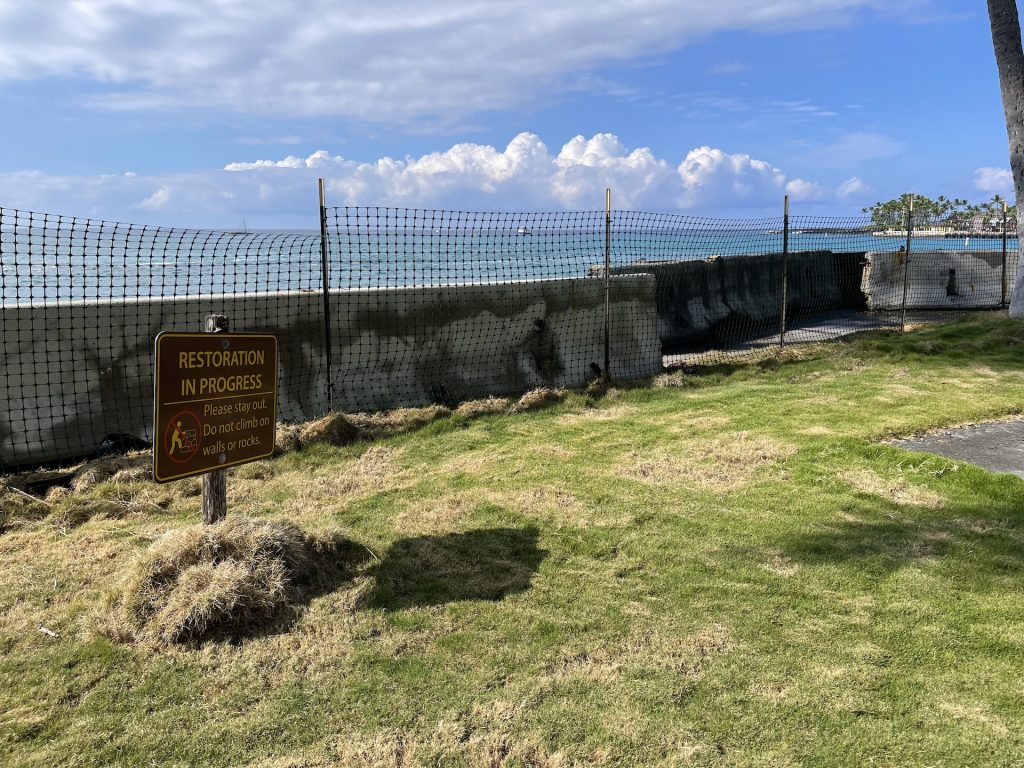
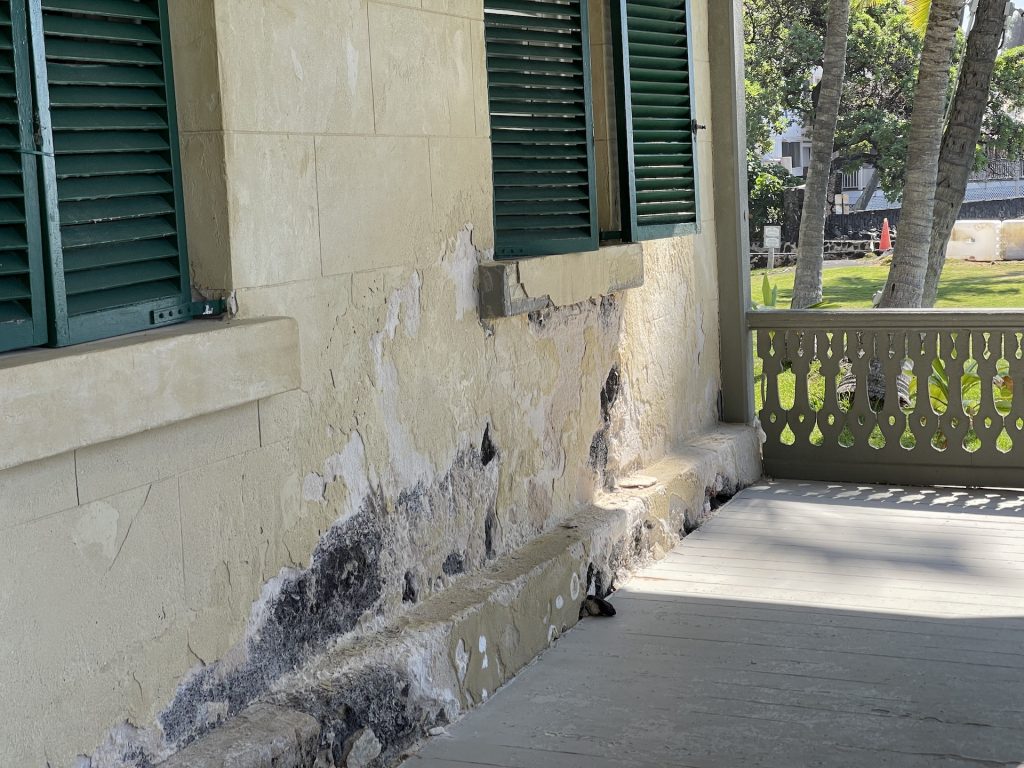
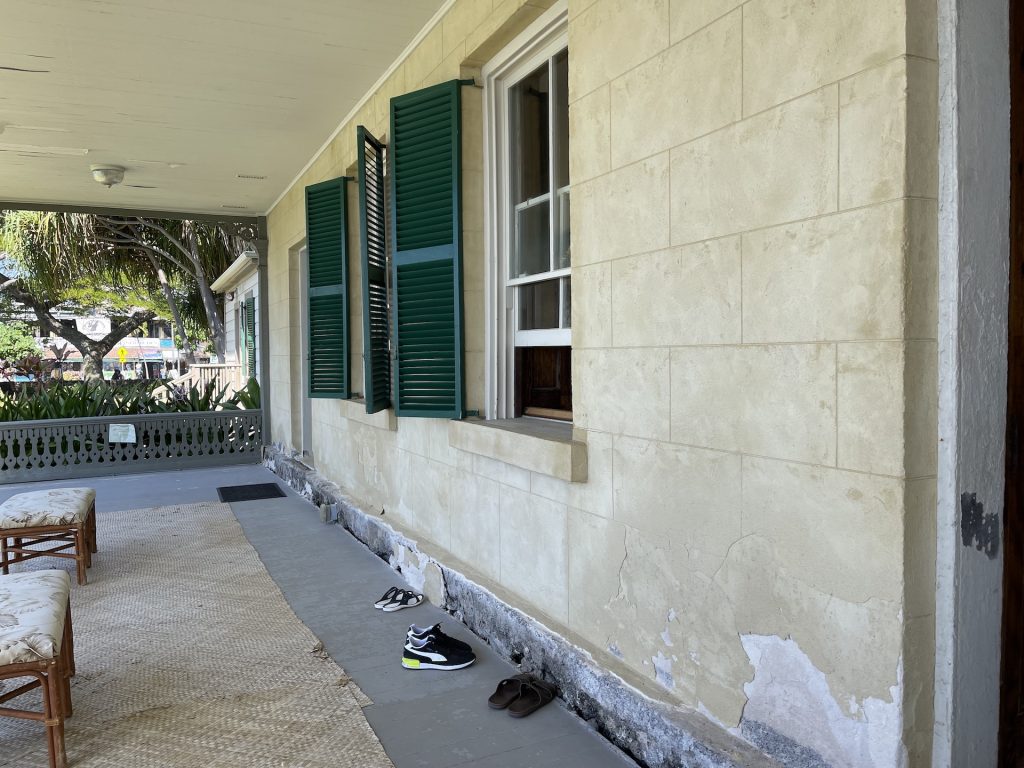



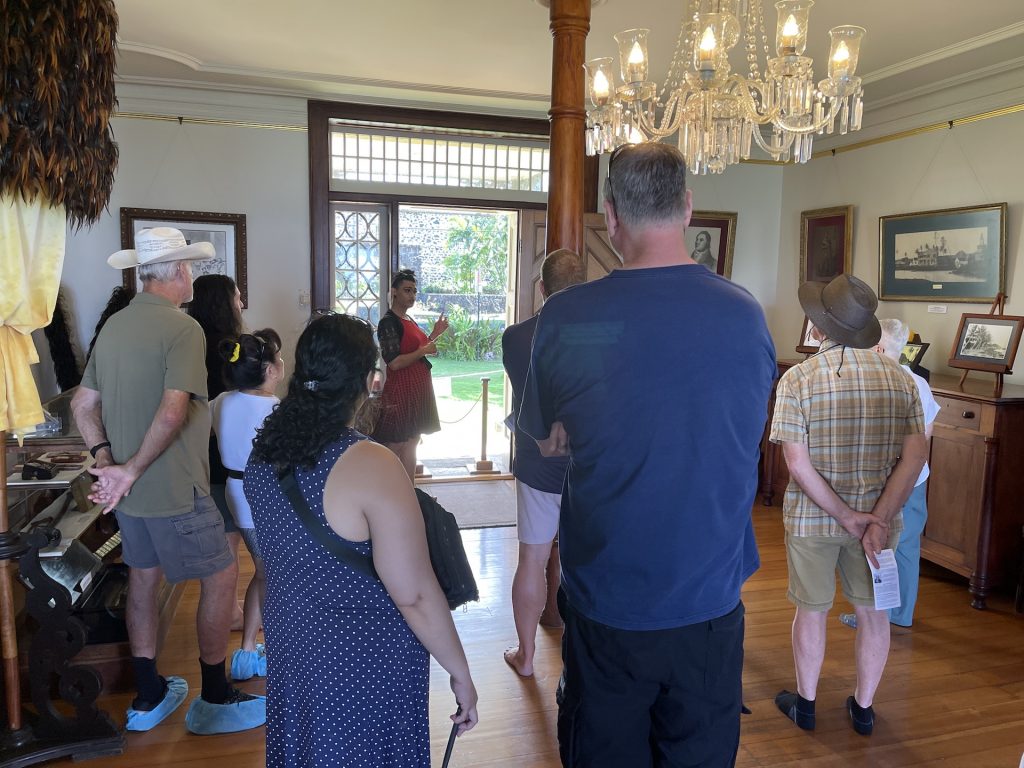
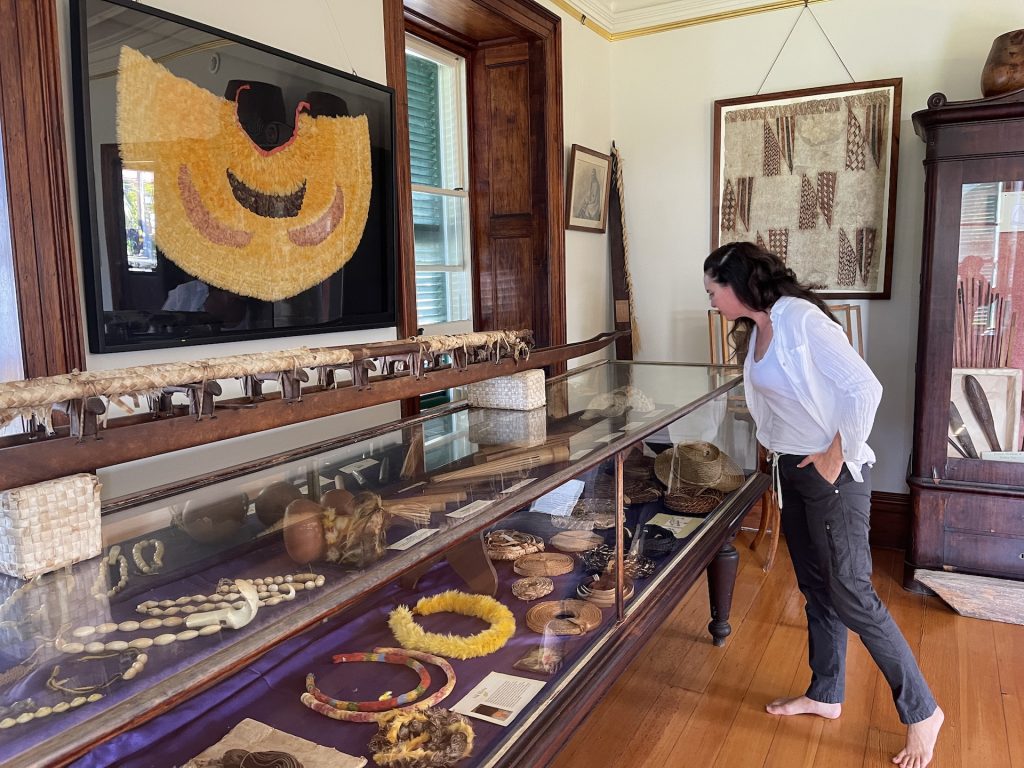
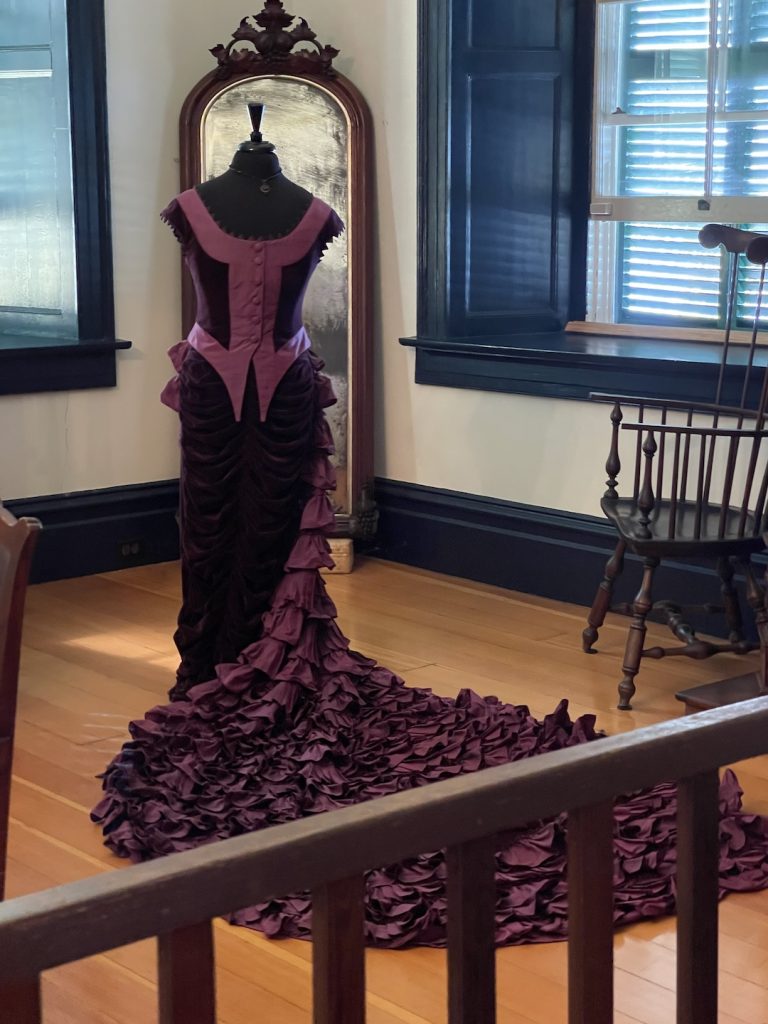
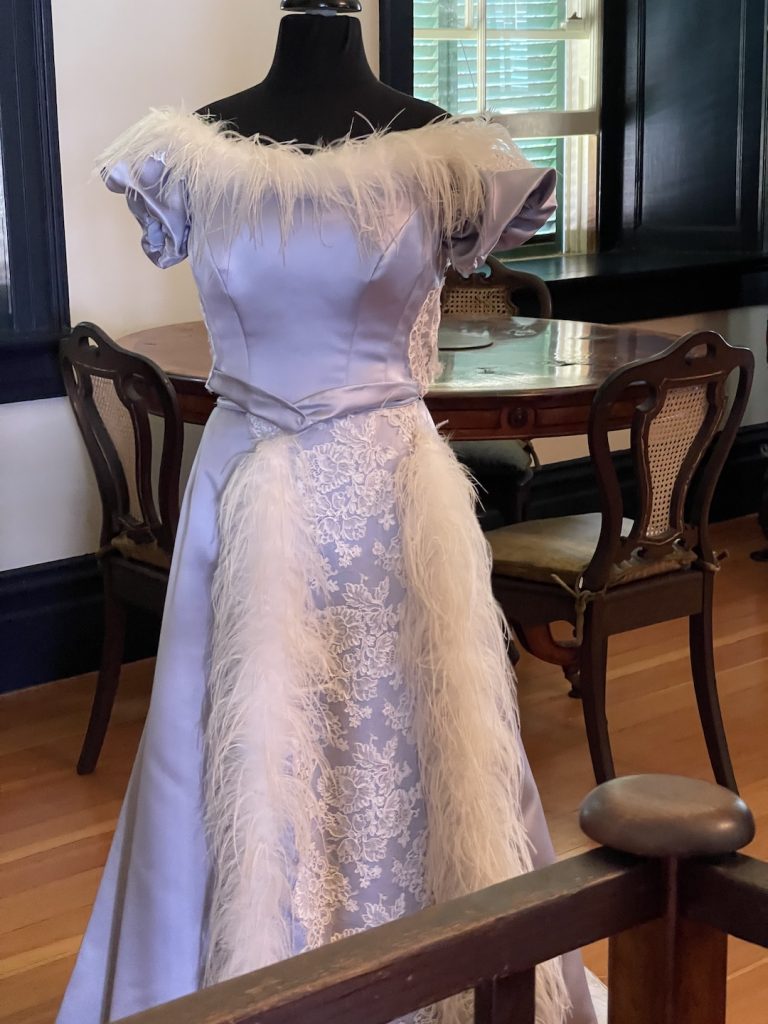
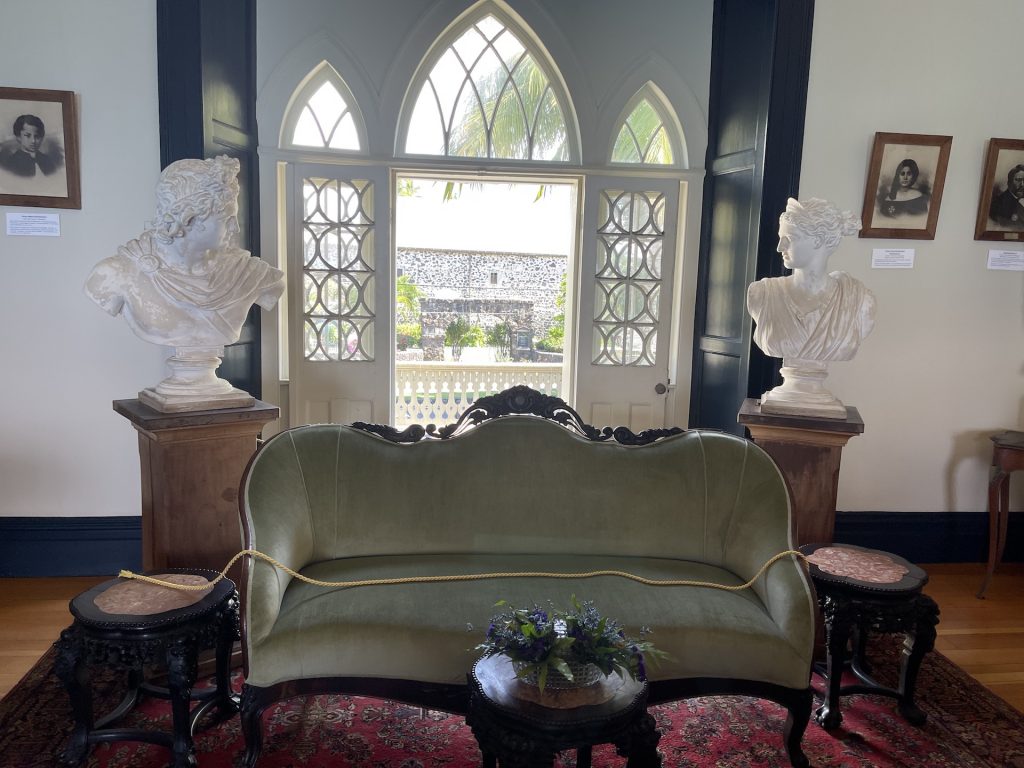
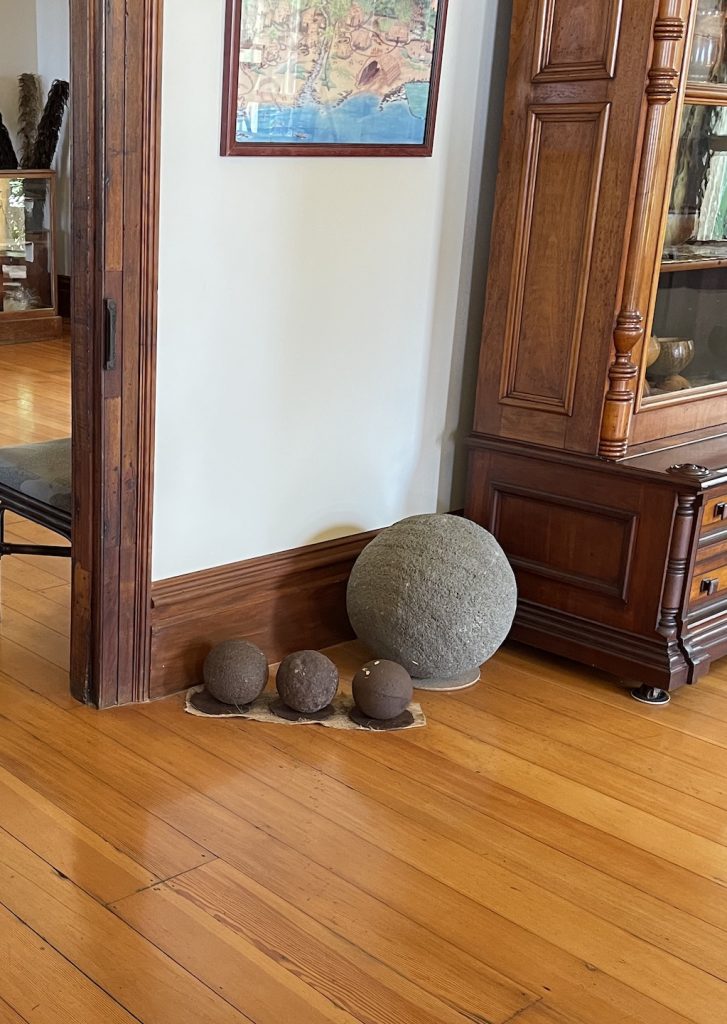
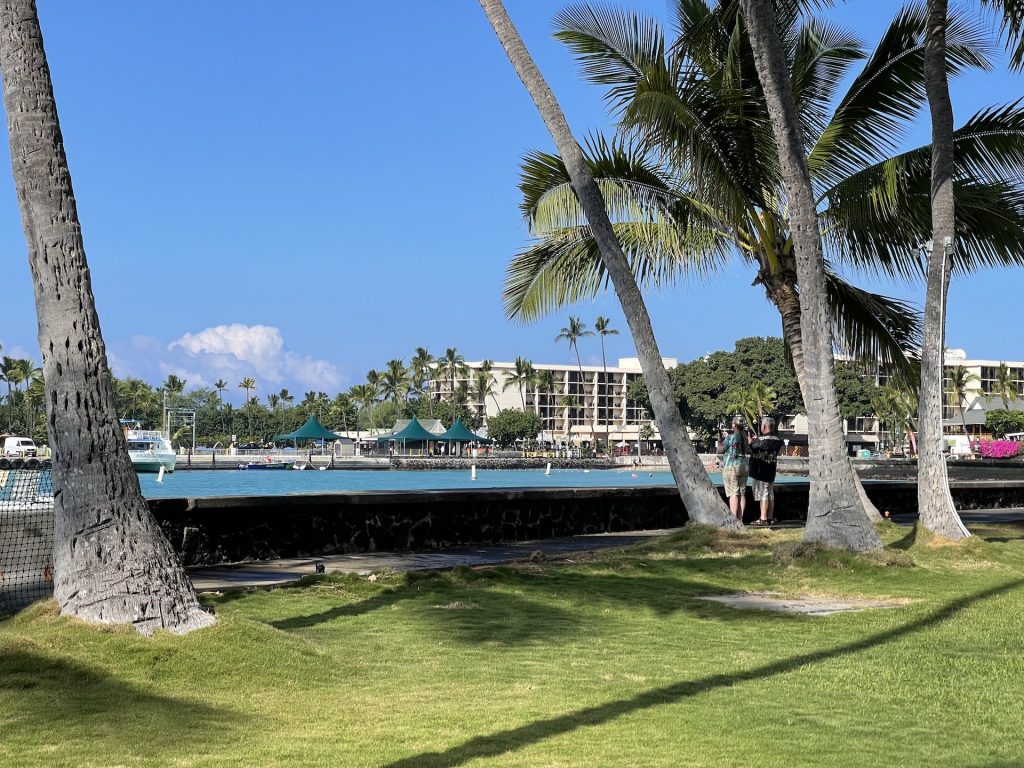
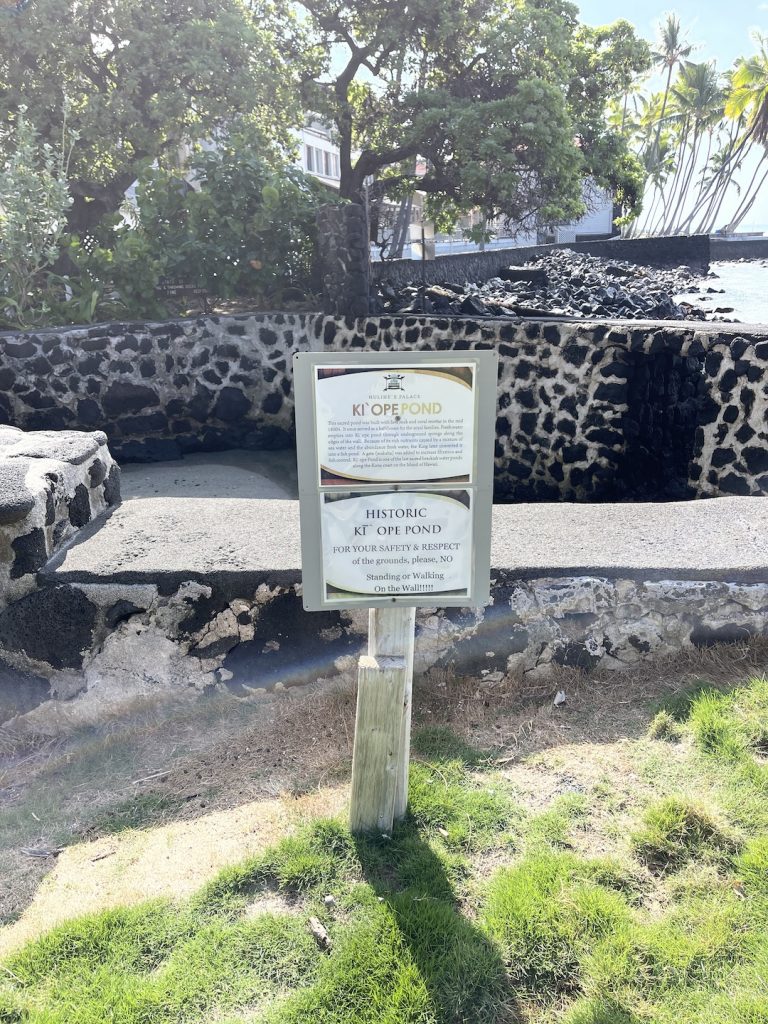
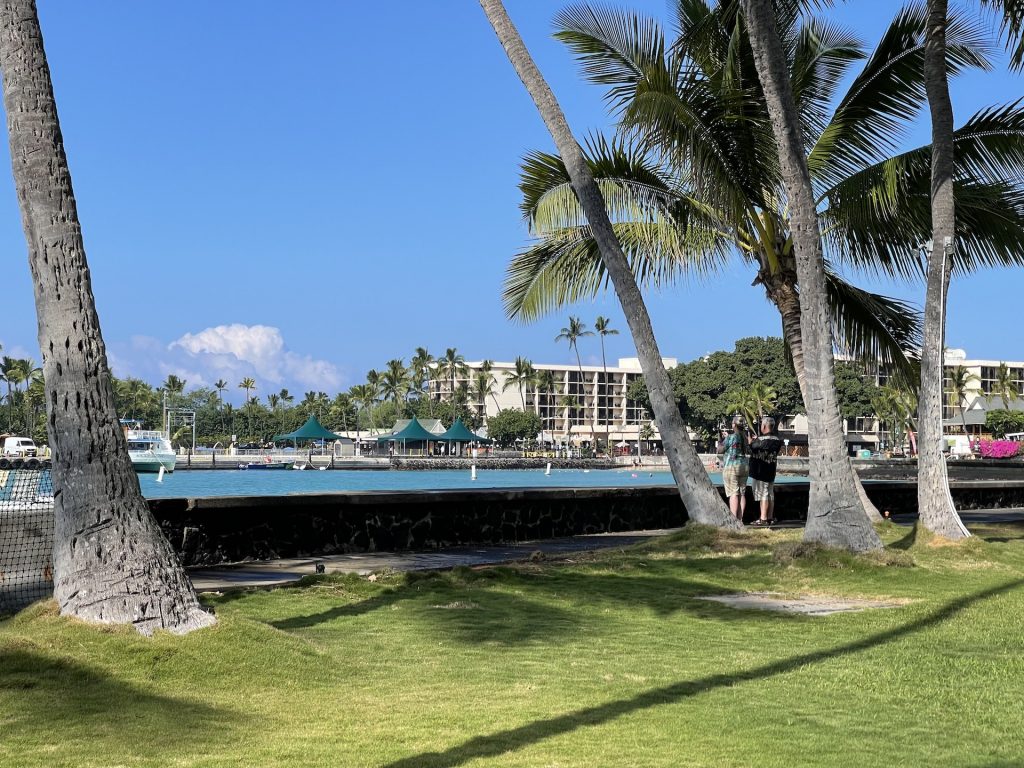
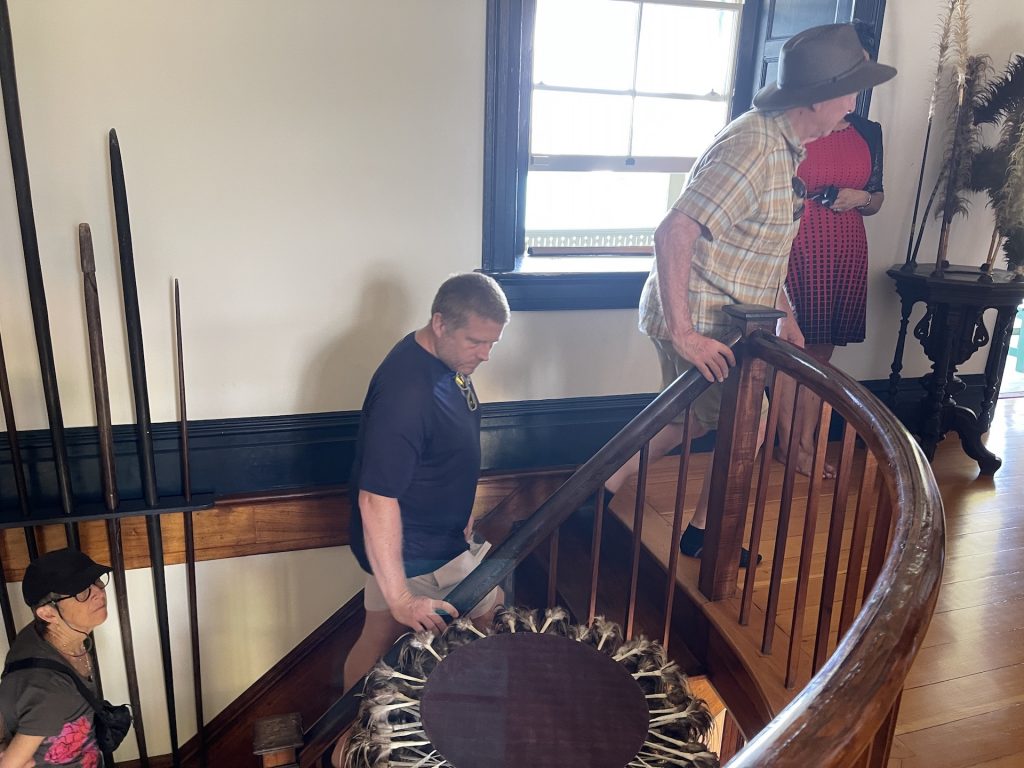
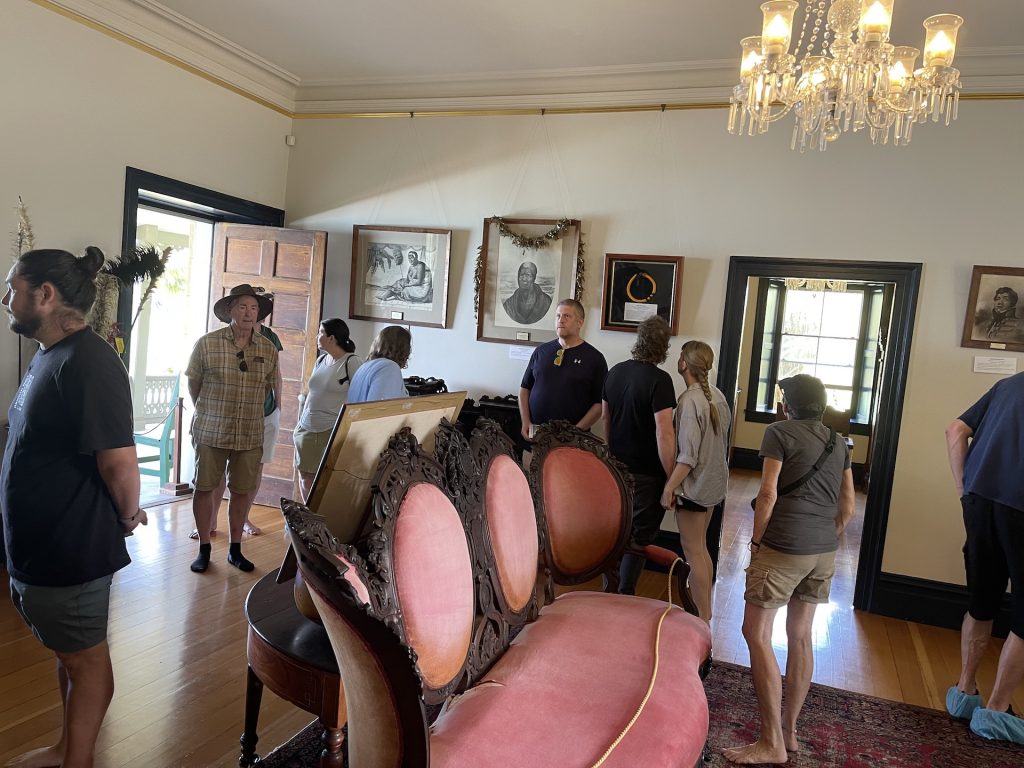












_1770333123096.webp)


